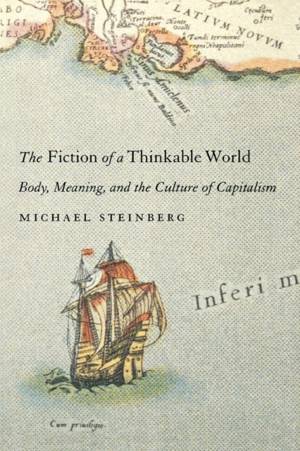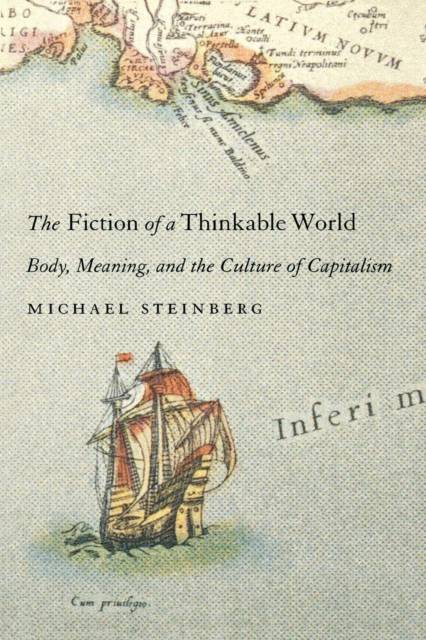
- Afhalen na 1 uur in een winkel met voorraad
- Gratis thuislevering in België vanaf € 30
- Ruim aanbod met 7 miljoen producten
- Afhalen na 1 uur in een winkel met voorraad
- Gratis thuislevering in België vanaf € 30
- Ruim aanbod met 7 miljoen producten
Zoeken
Fiction of a Thinkable World
Body, Meaning, and the Culture of Capitalism
Michael Steinberg
Paperback | Engels
€ 30,45
+ 60 punten
Omschrijving
In the culture of the modern West, we see ourselves as thinking subjects, defined by our conscious thought, autonomous and separate from each other and the world we survey. Current research in neurology and cognitive science shows that this picture is false. We think with our bodies, and in interaction with others, and our thought is never completed. The Fiction of a Thinkable World is a wide-ranging exploration of the meaning of this insight for our understanding of history, ethics, and politics. Ambitious but never overwhelming, carrying its immense learning lightly, The Fiction of a Thinkable World shows how the Western conception of the human subject came to be formed historically, how it contrasts with that of Eastern thought, and how it provides the basic justification for the institutions of liberal capitalism. The fiction of a world separated from each of us as we are separated from each other, from which we make our choices in solitary thought, is enacted by the voter in the voting booth and the consumer at the supermarket shelf. The structure of daily experience in capitalist society reinforces the fictions of the Western intellectual tradition, stunt human creativity, and create the illusion that the capitalist order is natural and unsurpassable. Steinberg's critique of the intellectual world of Western capitalism at the same time illuminates the paths that have been closed off in that world. It draws on Chinese ethics to show how our actions can be brought in accord with the world as it is, in its ever-changing interaction and mutual transformation, and sketches a radical political perspective that sheds the illusions of the Western model. Beautifully conceived and written, The Fiction of a Thinkable World provides new ways of thinking and opens new horizons.
Specificaties
Betrokkenen
- Auteur(s):
- Uitgeverij:
Inhoud
- Aantal bladzijden:
- 224
- Taal:
- Engels
Eigenschappen
- Productcode (EAN):
- 9781583671153
- Verschijningsdatum:
- 1/04/2005
- Uitvoering:
- Paperback
- Formaat:
- Trade paperback (VS)
- Afmetingen:
- 142 mm x 194 mm
- Gewicht:
- 258 g

Alleen bij Standaard Boekhandel
+ 60 punten op je klantenkaart van Standaard Boekhandel
Beoordelingen
We publiceren alleen reviews die voldoen aan de voorwaarden voor reviews. Bekijk onze voorwaarden voor reviews.











